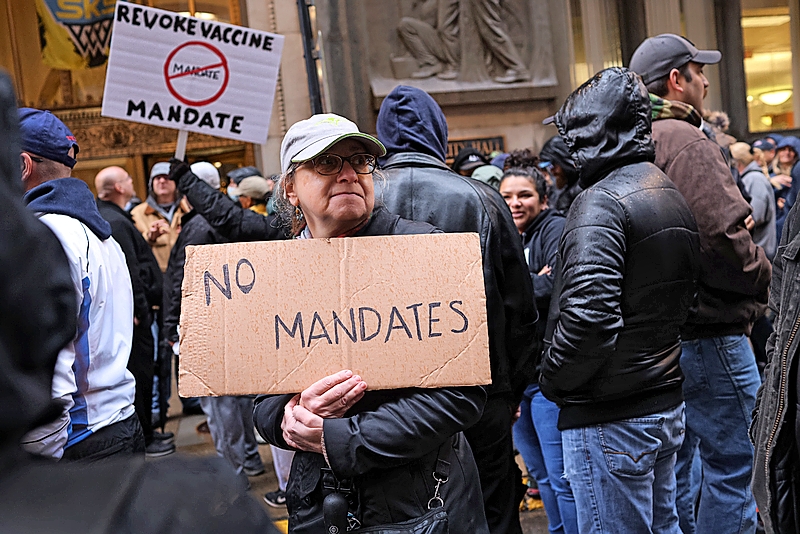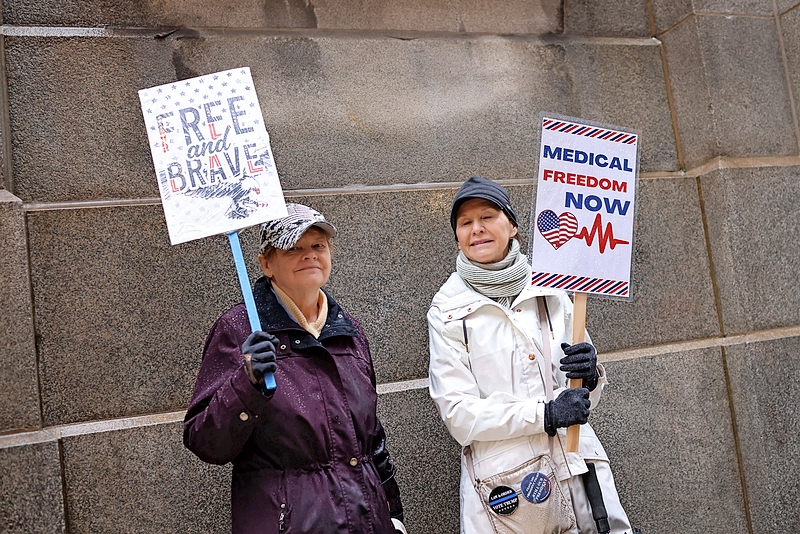Public push back
By Naperville Magazine
December 2021 View more Community

In Naperville, six firefighters are suing Governor J.B. Pritzker and the city for imposing and enforcing a mandate that health care workers be vaccinated against COVID-19, arguing that the mandate is unconstitutional.
In Chicago, the police union is fighting the city’s expectation that officers report their vaccination status and that unvaccinated officers be tested regularly.
In New York City, the police officers’ union has been to court seeking to slow implementation of the city’s requirement that all employees be vaccinated to allow officers to ask for religious exemptions.
The cases—and hundreds of others filed across the country—aim to define the employer-employee relationship and find a balancing point between individual rights and public responsibility.
These mandate-challenging lawsuits involve issues of privacy, religion, disability, and collective bargaining, says Martin Malin, professor emeritus of Illinois Institute of Technology’s Chicago-Kent College of Law and founder of the school’s Institute for Law in the Workplace. Malin was appointed chair of the Federal Labor Relations Authority Federal Service Impasses Panel by President Biden in late August.
“Employers routinely require employees to do things to protect themselves and others, for example, wearing PPE [personal protective equipment],” he says. “If you work at a construction site, you’d better wear a hard hat.”
Health workers and first responders already are required to be vaccinated against everything from tetanus to the flu. The lawsuits seek to find daylight between routine immunizations and the coronavirus vaccine, he says. “They’re not [different] legally, as far as I can tell.”
The Equal Employment Opportunity Commission has issued guidance indicating that workplace requirements for vaccinations, regular testing, and reporting status are generally legal, Malin says.
The Chicago police union lawsuit specifically objects to having to report private information. Malin, though, says employers already must protect medical information and store it confidentially, separately from other employee records. It’s likely, he says, that such files are in place for first responders who must meet physical fitness requirements.
Under the Civil Rights Act, employers must offer alternatives to accommodate employees’ religious beliefs. And to comply with the Americans with Disabilities Act, employers must provide reasonable accommodations for employees unable to take the vaccine, Malin says.

“Related litigation we’ve seen is typically involving first responders and health care workers about whether they have to be vaccinated against the flu. Those plaintiffs almost unanimously lost, and that’s because employers offered an alternative,” he says. “What a lot of employers are doing [with COVID vaccine mandates] is saying the alternative to being vaccinated is that you have to be tested once or twice a week.”
Illinois’s mandate covering health workers, including the Naperville firefighters, allows unvaccinated employees to test weekly. But some unions have challenged vaccine mandates by arguing that changes to employment requirements must be negotiated with the union along with wages, hours, and other working conditions.
Employers do have a duty to negotiate with unions, but most collective bargaining agreements include a management rights provision that commonly allows an employer to prescribe “reasonable rules and regulations,” he says. Given the public health concerns, requiring a vaccine in a pandemic may be considered reasonable, he says.
“It’s an open question in Illinois whether a vaccine requirement—specifically a COVID vaccine—has to be negotiated,” Malin says.
In California and New Jersey, authorities have ruled that employers can require COVID-19 vaccines without bargaining with unions. The Illinois Labor Relations Board and the Illinois Educational Labor Relations Board have yet to review a refusal-to-bargain complaint.
Photo by Scott Olson/Getty Images


